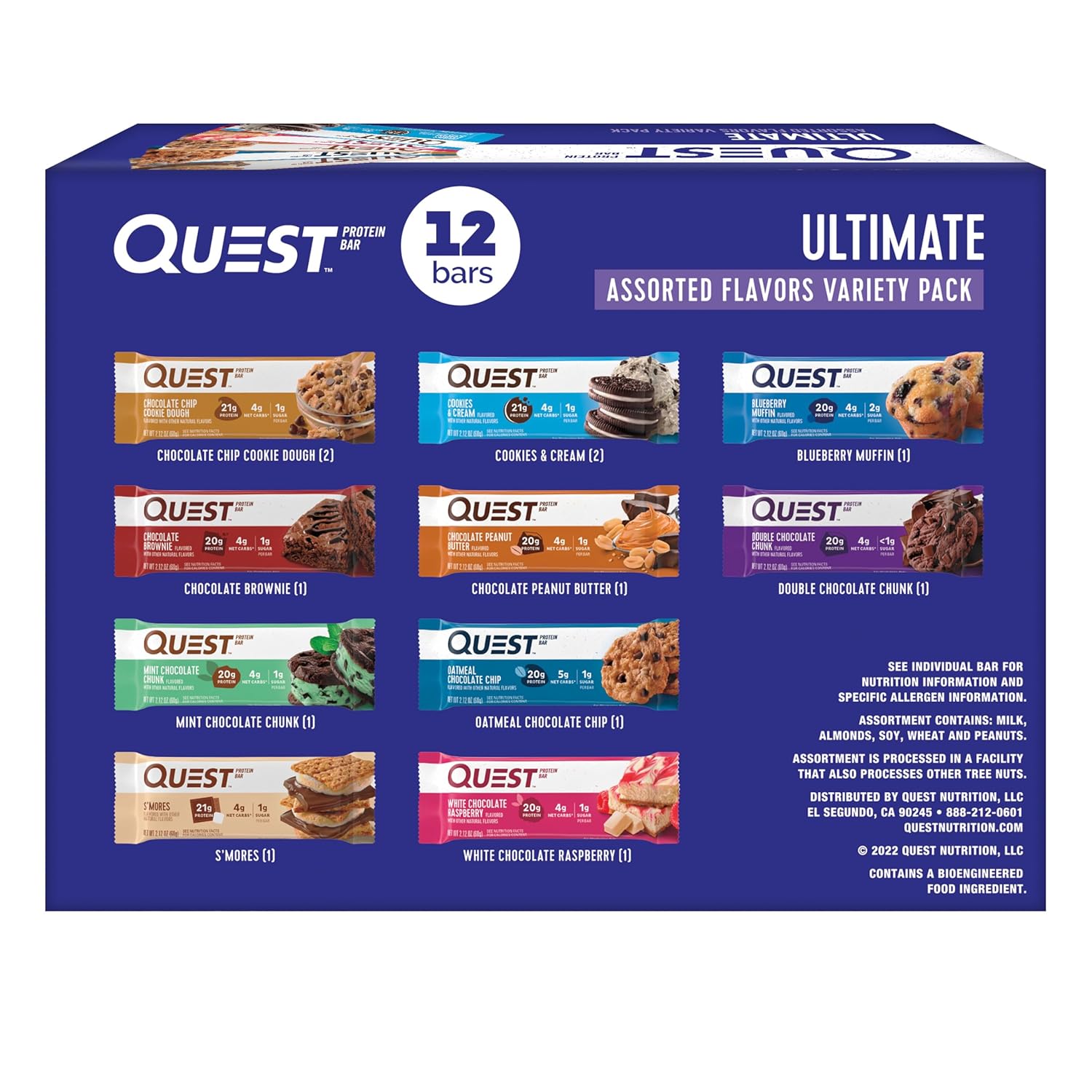“Low on strength, the body weakens; searching for energy, struggling to restore balance.”
Have you ever wondered if you’re getting enough protein to reach your goals, whether it’s building muscle, losing weight, or just feeling more energized?
You might wonder, how much protein do I really need? With so much information available, finding the right amount of protein can be confusing.
This article will help clear up the confusion and help you understand your unique protein needs based on factors like age, activity level, and health goals.
Let’s explore how to adjust your protein intake for the best results and simple ways to add it to every meal.
What Is Protein and Why Is It Essential for Your Health?
Protein is often called the body’s “building block” because it is crucial for building muscles, repairing tissues, supporting the immune system, and producing hormones.
When you eat protein-rich foods, your body breaks them down into amino acids that help with these functions. Without enough protein, your body might not work as well in many ways.
👉 Fun Fact
Your body can’t store protein like it does fats and carbs, so you need a steady supply from your meals. Think of it like refilling a toolkit—without regular protein, your body’s “tools” for repair and growth start running low!
Here are some of the health benefits of protein:
- Supports muscle growth and repair
Protein helps support muscle growth and repair. It is vital for maintaining lean muscle mass, especially as you age.
- Strengthens immune function:
Protein is important in strengthening the immune function as it produces antibodies that fight off infections.
- Assists in hormone balance:
It helps balance hormones like insulin and growth hormones as they are protein-based.
- Contributes to healthy skin, hair, and nails:
Protein is essential for healthy skin, hair, and nails. It helps generate cells and maintain skin elasticity.
How Much Protein Do You Really Need Each Day?
Are you curious about how much protein you really need each day?
The recommended amount of protein varies for each person. For the average adult, about 0.8 grams of protein per kilogram of body weight is a general guideline, but factors like age, activity level, and health goals can adjust this amount.
Understanding these needs can help you fine-tune your protein intake to support your body’s requirements better.
#1: Age: Protein Needs for Different Life Stages
With age, the body’s need for protein increases to prevent muscle loss and maintain strength. It is especially vital for seniors, who face a greater risk of muscle decline, called sarcopenia. Ensuring adequate protein intake helps preserve muscle, supports mobility, and lowers the chances of falls and related injuries.
Protein intake for seniors: To support muscle maintenance and overall health, older adults should aim for 1 to 1.2 grams of protein per kilogram of body weight daily. This increased intake helps neutralize muscle loss, supports mobility, and contributes to overall strength as they age.
#2: Activity Level: Supporting Your Body’s Energy Demands
An individual’s physical activity level strongly influences how much protein they should consume. Athletes and active individuals use more protein to repair and rebuild muscle fibers damaged during exercise. Higher-intensity activities like weight lifting and endurance training generally demand more protein for optimal recovery and muscle growth.
Protein intake for muscle gain: If you’re an athlete or someone who regularly engages in strength training, you may need between 1.2 to 2.0 grams of protein per kilogram of body weight to optimize muscle growth and recovery.
#3: Health Goals: Protein for Weight Loss, Muscle Gain, and Wellness
Your protein needs can change depending on your health goals. For example, eating more protein can help you feel full longer, control hunger, and reduce calories if you’re trying to lose weight. If you focus on overall health, you may stick to the regular protein recommendation but still choose the best sources.
Protein intake for weight loss: Eating more protein, about 1.2 to 1.5 grams per kilogram of body weight, can help you feel fuller longer, keep your muscles, and boost your metabolism, all of which support better health and weight management.
Bonus Point
Your protein needs adapt just like your energy levels. On days when you’re active or hitting the gym, think of protein as your body’s repair kit—essential for recovery and strength. But on rest days, a balanced amount keeps you fueled without overloading. Tailoring your protein intake to match your day keeps you energized, resilient, and ready for what’s next!
Your protein needs depend on your age, activity level, and health goals, so adjusting your intake can help you stay healthy and support your body’s needs.
Top Protein Sources to Fuel Your Diet
Getting enough protein in your daily diet is simple. You can find protein in both animal-based and plant-based foods.
- Lean Meats
You can incorporate lean meats like chicken breast, turkey, and lean beef cuts into your diet. They are packed with high-quality protein and low in fat, making them great choices for muscle maintenance.
- Fish and Seafood:
Other great protein sources are Salmon, tuna, shrimp, and omega-3 fatty acids, which support heart health and reduce inflammation.
- Dairy Products
Greek yogurt, cottage cheese, and milk are great protein sources that also provide calcium and are ideal for breakfast or post-workout recovery.
- Eggs
Eggs are a complete protein source, containing all essential amino acids, making them versatile for any meal.
- Legumes and Beans
Legumes and beans such as lentils, chickpeas, and black beans are excellent plant-based protein options and provide fiber, which helps with digestion.
- Nuts and Seeds
You can include nuts and seeds like almonds, chia seeds, and hemp seeds in your diet as they are high in protein and healthy fats, making them perfect for snacks or adding to meals.
- Whole Grains
Whole grains are the best for protein intake. You can include quinoa, farro, and amaranth, which offer a complete amino acid profile and support muscle growth and repair.
Mindful Eating
As you add protein-rich foods to your meals, take a moment to appreciate their flavors and benefits. Savor each bite, knowing it’s fueling your body and supporting your goals. Embrace the variety and let each source remind you of the strength and nourishment it provides.
These options ensure you meet your daily protein needs while adding variety to your diet.
How to Add Protein to Every Meal for Maximum Results?
Incorporating protein into every meal is essential as it enhances muscle synthesis and helps you feel full longer, benefiting weight management.
Here are a few tips that will help you add protein to your every meal:
- Breakfast
You can start with Greek yogurt topped with nuts and seeds or try scrambled eggs with a side of turkey sausage.
- Lunch
Add grilled chicken or chickpeas to your salad or a quinoa bowl with mixed vegetables.
- Dinner
It is important to choose lean meats or fish paired with a side of beans or lentils and complete the meal with steamed greens.
- Snacks
Protein bars, boiled eggs, or cottage cheese are available to curb hunger between meals.
👉 Pro Tip
Start each meal with a protein focus! By planning your plate around a protein source first, you’ll naturally boost muscle recovery, maintain steady energy, and feel fuller longer—plus, it’s an easy way to make each meal more satisfying and goal-friendly.
Here are the protein timing for athletes and active individuals:
If you have fitness goals, timing your protein intake can be helpful. Eating protein-rich foods or drinking a protein shake within 30-45 minutes after a workout supports muscle recovery and growth. This time, often called the “anabolic window,” is when your body is especially good at using protein to repair muscles.
Conclusion
A strong, balanced body needs the right nourishment, with protein at its core. Protein helps repair muscles, boost immunity, and keep your body working well.
By knowing how much protein you need, choosing good sources, and adding it to every meal, you support your health daily.
Prioritizing protein is more than a diet choice; it’s a way to fuel your energy, balance, and wellness daily. These small changes can help you feel stronger, healthier, and full of energy.
“Regained strength, body thriving; maintained balance, the soul reviving.”
Challenge Yourself: “Protein Plate Builder”
- Step 1: Take a moment to plan your meals for tomorrow—think breakfast, lunch, dinner, and one snack.
- Step 2: For each meal, add at least one protein source from this article (like eggs for breakfast, chicken for lunch, or beans for dinner).
- Step 3: Score yourself:
- 2 points for each meal with a unique protein source
- 1 point for a protein-packed snack
- Bonus Round: If you include both animal-based and plant-based proteins throughout the day, add 3 extra points for balance!
- Goal: Hit 10 points by the end of the day to earn the title “Protein Plate Pro” and see how it makes you feel!
This game encourages you to mix and match protein sources creatively, making each meal both nutritious and fun.





















